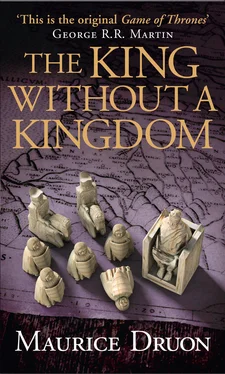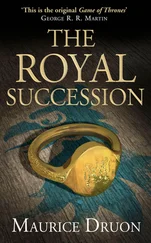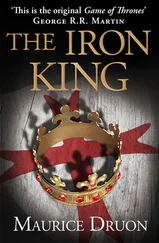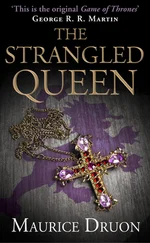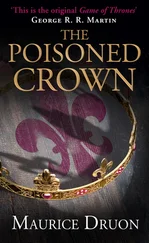Because I love Bourdeilles, you see; I know that I could be happy there if God had assigned me not only to possess it but also to reside there. He who has just one single, unique and modest possession may enjoy it to the full. He who has vast and multifarious possessions enjoys only the idea of them. Heaven always evens out what we are honoured with.
When you return to Périgord, would you grant me the favour of revisiting Bourdeilles, Archambaud, to see if the roofing has been repaired as I requested earlier. And the fireplace in my room was smoking … It is lucky indeed that the English spared it. You saw Brantôme, we just passed through: you saw the devastation they caused, a town that used to be so lovely and so beautifully set on the banks of its river, razed! The Prince of Wales stopped over for the night of the ninth of August, according to what I have been told. And in the morning, before leaving, his coutiliers and valets 3set the place ablaze.
I strongly condemn the way they destroy everything, burning, exiling, ruining, as they seem to be doing more and more often. I can understand men-at-arms will slit each other’s throats in wartime; if God hadn’t designated me for the Church, I should have had to take arms and fight, and I would have shown no mercy. Pillaging is acceptable: one must give some of life’s pleasures to those men of whom we require the shedding of blood, including their own. But raiding for the sole purpose of leaving behind a destitute people, burning thatch and crops to expose them to famine and chill, consumes me with rage. I am aware of the intention; the king can no longer draw taxes from a ruined province, and by destroying his subjects’ goods and belongings a monarch can be weakened. However, this doesn’t hold true. If the Englishman purports to have a claim to France, why would he lay the country to waste? And does he imagine that he will ever be accepted, acting this way? Even if he prevails in the signing of treaties after prevailing in the winning of battles, does he really think that? He sows seeds of hatred. He most probably deprives the King of France of money, but at the same time he supplies this monarch with many souls spurred on by anger and a desire for vengeance. King Edward will inevitably manage to find a few overlords here and there willing to swear allegiance to him in pure self-interest, but the people will be set against him for ever from the time he committed these inexpiable acts of destruction. Take a look at what is happening already; good people don’t resent King John for having lost in battle; they take pity on him, calling him John the Brave, or John the Good, when they should be calling him John the Fool, John the Obstinate, John the Incapable. And you will see that they will willingly bleed to pay his ransom.
You ask me why I told you yesterday that the plague had had such a disastrous effect on John and on the kingdom’s fate? Ah! My nephew, for its own reasons, death, a handful of deaths in the wrong order, the deaths of women, first of all his own wife, Madame Bonne of Luxembourg, before he became king.
Madame of Luxembourg was taken by the plague in September of the year 1349. She was to have been queen, and would have been a good queen. She was, as you know, the daughter of the King of Bohemia, John the Blind, who so loved France he maintained that Paris was the only court in which one could live nobly; he was a model of chivalry, albeit not entirely of sound mind. Although he could not see a thing, he insisted stubbornly on fighting at Crécy, and in order to do so, had his horse attached to the mounts of the two knights who rode on either side of him. And that was how they flung themselves into the fray. All three of them were found dead, still tied together. Now the King of Bohemia wore three white ostrich feathers on the crest of his helmet. The young Prince of Wales was struck by his noble demise – the prince was then nearly sixteen; it was his first battle – and he did well, notwithstanding King Edward considered it politic to exaggerate the deeds of his son and heir in the matter. The Prince of Wales was thus so hard hit he begged his father to allow him to adopt the same emblem as the late, blind king from that day on. And that is why three white feathers can now be seen on the prince’s helmet.
However, the most important thing about Madame Bonne was her brother, Charles of Luxembourg, whose election to the crown of the Holy Roman Empire we, Pope Clement VI and I, actively encouraged. Not that we were unaware that we would have a good deal of trouble with as sly an old fox of a yokel as he … Oh! You will soon see for yourself he is nothing like his father; but as we had justifiable fears that France would fall on wretched times, it could only strengthen the country to make its future king the Emperor’s brother-in-law. But with the sister dead, the alliance was no more. And though troubles indeed we have had with his Bulla Aurea, 4he has never given support to France, and that is why I am leaving for Metz.
King John, who was then still Duke of Normandy, showed little despair upon the death of Madame Bonne. They hadn’t got along well, with more stormy outbursts between them than harmony and understanding. Although she possessed grace, and he had made her round with child every year, eleven in all, since he had been given to understand that it was time for him to draw closer to his wife in bed, Monseigneur John was more inclined to shower his affections upon his very own cousin, eight years his junior and of rather fine bearing. Charles de La Cerda, who was also known as Monsieur of Spain, 5as he belonged to a supplanted branch of the throne of Castile.
No sooner was Madame Bonne buried than Duke John withdrew to Fontainebleau in the company of the handsome Charles of Spain, in flight from the epidemic. Oh! This vice is by no means rare, my nephew. I can’t understand it and it annoys me no end; it is one of the vices for which I have the least indulgence. We must admit however that it is widespread, even amongst kings, to whom it does a great deal of damage. Look no further than to the case of King Edward II of England, father of the current king. It was sodomy that cost him both his throne and his life. Our King John doesn’t flaunt his depravity quite so openly; but he does have many of the characteristics of a sodomite, and he revealed these traits particularly in his consuming passion for this Spanish cousin with the too-pretty face.
Whatever is the matter, Brunet? Why are we stopping? Where are we exactly? In Quinsac. This was not planned. What do these yokels want? Ah! A blessing! We shall not stop my retinue for such a thing; you know perfectly well that I only bless on foot. In nomine patris … lii … sancti . Go, good people, may you be blessed, go in peace. If we had to stop every time I am asked for a benediction, we would be six months in reaching Metz.
So, as I was saying, in September of the year 1349, Madame Bonne died, leaving the heir to the throne a widower. In October came the turn of the Queen of Navarre, Madame Jeanne, whom they used to call Little Joan, the daughter of Marguerite of Burgundy and perhaps, or perhaps not, Louis Hutin, 6the one who was kept from succession to the French throne under suspicions of illegitimacy – yes, the child of the Tower of Nesle affair – she too was taken by the plague. Neither was her demise met with many tears. She had been widowed for six years by her cousin Monseigneur Philip III of Évreux, killed fighting against the Moors somewhere in Castile. The crown of Navarre had been ceded by Philip VI upon his accession to remove any claims they could have made to the French throne. That was just part of the bargaining that ensured the throne to the Valois.
I have never approved of this Navarrese arrangement, it was neither valid de jure nor de facto . 7But I didn’t then have a say! I had just been appointed Bishop of Auxerre. And even if I had said something … It just didn’t make legal sense. Navarre was inherited from Louis Hutin’s mother. If little Joan wasn’t Louis’s daughter but that of any old equerry, she would have been no more entitled to Navarre than to France. Therefore, if one acknowledged her right to one of the crowns, then ipso facto one substantiated her claims, and her descendants’ claims, to the other. One admitted rather too easily that she had been kept from the throne, not for her alleged illegitimacy, but rather because she was a woman, and thanks to the artifice of a law invented by, and for, males.
Читать дальше
